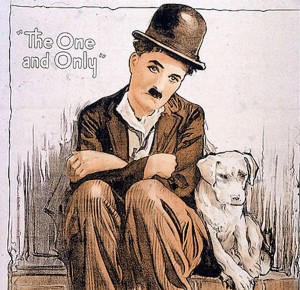It’s called “mutational load.” Doesn’t sound all that pleasant does it? And, it’s ascribed mainly to men. Now, in addition to mid-life crises and retirement, it’s something new to think about as you age.
Boning up for my keynote speech on “The Reproductive Genetics of the Aging Male” for the American Society of Andrology this weekend, the drama of genetics, evolution and older fathers played out in my mind. Yes, the human male, my friends, is themain generator of mutations that drives our evolution. And the sheer number of mutations, that is the “load,” increases dramatically as men age. Imagine leaving a job so important for our continued success as a species almost entirely up to men!
No Bad Sperm
Over the past 20 years, my experience as a male fertility specialist has led me to believe that sperm are… well…sperm! Seeing so many healthy babies being born out of so many extreme fertility situations has taught me to trust the “quality control” mechanisms that exist to ensure that healthy sperm lead to healthy babies. Here are some of these situations:
-

Charlie Chaplin fathered 8 children when he was 55 to 73 years old (courtesy: Wikipedia) Babies naturally conceived with chemotherapy and cancer-surviving fathers are healthy.
- Babies conceived using low or normal numbers of ejaculated sperm along with IVF-ICSI, in which many barriers to natural selection are removed, are generally healthy.
- Babies conceived using small numbers of sperm extracted from the testicle and derived from men after intensive treatment of extreme cancers and used with IVF-ICSI are generally healthy.
- Babies conceived using fresh or frozen-thawed sperm from any reproductive tract organ (ejaculate, epididymis or testicle) along with IVF-ICSI are generally healthy.
The Older Dad
So with respect to male infertility, genetic quality control systems appear remarkably robust. But things are different among even fertile men as they age. As my lecture discusses, there are eensy weensy little errors in DNA replication called point mutations that just happen to increase greatly in sperm as men age. Why? Who knows. Maybe the system that’s responsible for making 1000 sperm/heartbeat gets old and tired after 40 or 50 years of relentless, continuous use. To boot, these devilish little mutations are so small that they can easily bypass quality control checkpoints during sperm production. More importantly, they also sneak past the fairly extensive checkpoints set up by the fertilized egg to trap genetic saboteurs. Finally, to top things off, many of these point mutations are known to cause all kinds of diseases in offspring, including dwarfism, hemophilia, retinoblastoma, polycystic kidneys and cancer, to name a few. Add to this neurodevelopmental diseases that hit later in life, like autism, attention deficit disorder and schizophrenia, and you get a real sense of how utterly vile point mutations can be. And most of them come from sperm.
What’s a Guy To Do?
Just a couple of years ago, when we all lived in caves, very few of us survived past 40 years of age. So, I’m pretty sure that thoughts of being an older dad, unlike finding food or shelter, never really crossed our ancestor’s minds. Likewise, God or Darwin probably paid little attention to designing genetic quality control systems that would last forever. But in this modern era of the ultimate daddy-o’s like Charlie Chaplin and Charlton Heston, now, Houston, we have a problem.
Reared to be providers and protectors, men seek to achieve financial independence and career success in modern society. But now, because the kids of older dads may have higher chances of certain diseases than those of younger dads, we really need to think about our biological clocks…just like women.
Cross-posted from turekonmenshealth.com




Evolution is an interesting, yet limiting mechanism for biological development. As Dr. Turek pointed out, humans did not live very long in our early history. As a result, evolution did not select males to have high quality sperm production later in life. Modern medicine is extraordinary, but we must remember that we are still sometimes limited to our basic biology.